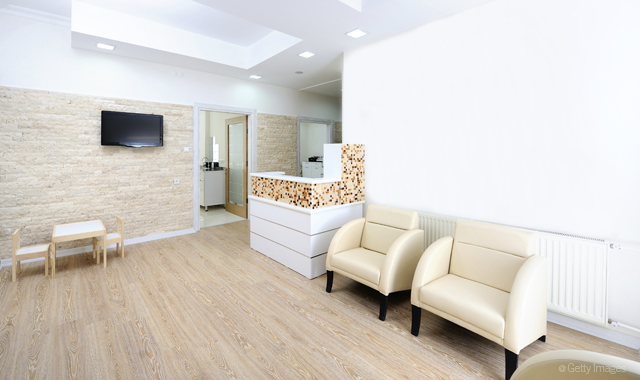Five myths your landlord wants you to believe
5 myths you might believe about your property, and what you can do to negotiate the best price on your property.

It can be difficult to discern fact from fiction when dealing with landlords. A misunderstanding of these key issues can have serious consequences for your practice. The following information should help dispel some common myths and prevent costly mistakes in your next lease negotiation.
Myth #1: The landlord is on your side
Many landlords attempt to befriend their tenants, making it difficult for tenants to remember the landlord’s primary goal is financial gain. They are seeking to secure a lease with the tenant paying as much as possible. Even the friendliest landlord wants to make the maximum profit on his or her space, just like the nicest tenant seeks the lowest possible lease rate so his or her business can thrive.
Financial burdens quickly arise for tenants who place undue trust in their landlord and fail to properly negotiate their lease. By having representation, you can learn how your lease compares to the market and ensure you are getting the best possible terms.
Related: 10 MORE ways to help your practice compete now and in the future
Myth #2: You are not entitled to representation
Some landlords employ intimidation, instead of friendliness, to achieve their goal. The intimidation tactics may include telling tenants they are not allowed to have representation. This is not true.
Lease negotiations are different than negotiating the price of a car or trying to haggle for a better price at a flea market. They are complex transactions, layered with hidden opportunities for landlords to take advantage of anyone not represented by an expert. Landlords are professionals who are aware of these complexities. If a landlord says you are not allowed to have representation, that is a clear signal they do not respect your desire to be treated fairly.
Myth #3: You are already getting the best possible rate for your space
There are many conditions that factor into lease rates for a commercial space. Things such as current building vacancy, length of the lease, amount of tenant improvement allowance, building condition and many other considerations impact the appropriate rate for a particular space. Several of these considerations are specific to spaces for healthcare tenants, highlighting the need for a real estate professional who has expertise in healthcare.
Healthcare practices are often told they are getting the best possible rate for their space when they could, in fact, receive a much better offer from the landlord when an expert assesses these mitigating factors.
Related: How to reduce costs, increase marketing and boost profits for your dental practice
Up next: More myths that be hindering your negotiating skills
Myth #4: Your renewal is not negotiable
Most leases provide an option for the tenant to renew their lease when it expires, and may even detail the exact terms of the renewal. However, it is important to understand that your renewal is negotiable, even if you have renewal terms specified in your current lease.
A landlord who says you cannot renegotiate the terms for your renewal is usually doing so because they can get you to pay more by exercising the option to renew instead of negotiating new terms. The only way to be certain you have the best possible terms for your renewal is to compare those terms with current market rates in the area, a vital step often missed by healthcare professionals entering this process alone.
Read more: How to lease office space without getting cheated
Myth #5: You have no other options; the landlord has many
This common myth might be the most important to address, because it is fundamental to how landlords operate. The landlord wants you to believe that his or her property is the only suitable location for your practice. The truth is that there are likely several other properties that would fit the needs of your practice, and the landlord should be competing to keep you in his building.
The landlord also wants you to believe he or she has several potential tenants ready to occupy your space if you don’t take it. This position is used to force a tenant to rush into signing an unfavorable lease when, in fact, it usually takes months or years to fill a commercial space. Each leasing situation is unique, and a healthcare real estate professional who knows your strengths as a tenant can help you understand what type of leverage you have.
Related article: The need for advisory services for the dentist
This information represents a few of the many misconceptions involving landlords in healthcare real estate transactions. Using a real estate professional with expertise in healthcare will help protect you from falling victim to these and other common landlord myths.
How Dentists Can Help Patients Navigate Unforeseen Dental Care
December 12th 2024Practices must equip patients with treatment information and discuss potential financing options before unexpected dental treatments become too big of an obstacle and to help them avoid the risk of more costly and invasive procedures in the future.